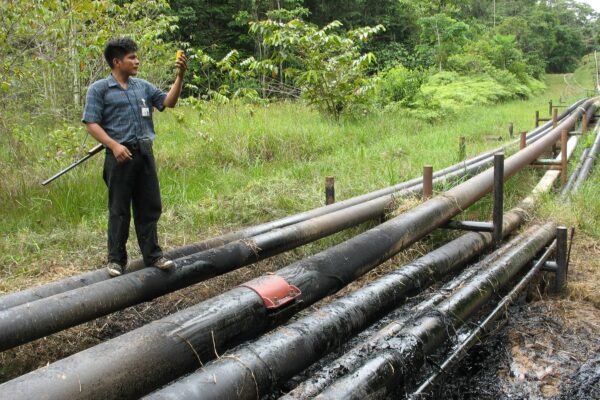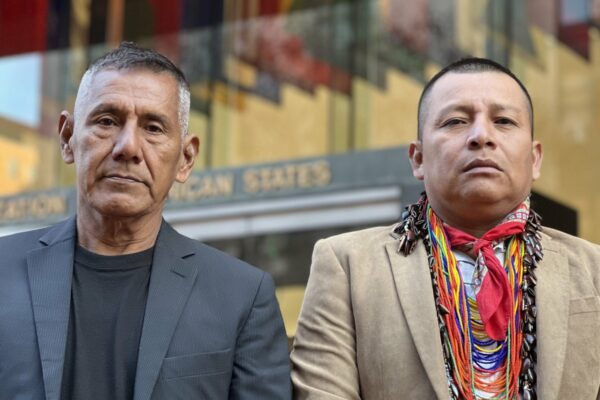A pipeline owned by the oil consortium Transredes burst on January 30 and reportedly spewed oil for 30 hours before valves were finally shut off. Nearly 160 miles (260 kilometers) of river and two lakes in the high plains region of Bolivia, just south of Lake Titicaca, have been polluted, and the livelihood for many indigenous people in the area has been threatened.
Shell Bolivia and US-based Enron International collectively run Transredes, who is in the process of building another controversial pipeline across the Chiquitano forest – the largest dry tropical forest left on earth. There have been unconfirmed reports that as much as 5,000 barrels of oil was spilled and that the pipeline broke because of a rapid rise of the river’s water level during to a storm. The pipeline carries petroleum to Arica, Chile.
The spill was spotted around 7pm on the night of January 30 by French hydrologist Jean-Gabriel Wasson, who was traveling through the area. He apparently went immediately to notify the police, but the pipeline’s oil flow was not shut off until past midnight, while valves on either side of the break were not shut until Monday afternoon.
The sustainable development minister accused Transredes of not acting quickly enough, and said that the company would be punished. “Only 24 hours after the spill occurred did Transredes inform the Sustainable Development Ministry,” a statement from the minister said. Transredes has blamed the police for failing to advise the company, and claims to have noticed a drop in pressure only at around midnight. Masson calculates that the pipeline lay open for nearly four hours before anyone caught on.
Since then, the oil has flowed about 160 miles (260 kilometers) down the Desaguadero River, and has reached Lake Poopo, a refuge for many migratory birds. Lake Poopo has previously been polluted by mining waste and communities along the Desaguadero river use its water to irrigate their crops.
Transredes’ treatment of the accident raises serious doubts about how it will handle the impacts of the controversial Bolivia – Cuiaba pipeline it proposes to build near communities who rely on the Chiquitano forest for their livelihoods. The indigenous and non-indigenous communities who live along the proposed pipeline route report that they have yet to be consulted about the project. According to Derrick Hindery, a consultant for US-based NGO Amazon Watch, Transredes refuses to reveal any of its plans around the project “because it is a Pandora’s box”.
SOURCES: Pers. Comm. Amazon Watch consultant in Bolivia, February 8, 2000; “Bolivian Pipeline Break Gushes Oil 30 Hours Unchecked”, By Mike Ceaser, Environment News Service, February 4, 2000; “Oil Pipe Bursts, Contaminates High Bolivian Lakes”, Reuters, February 4, 2000.













